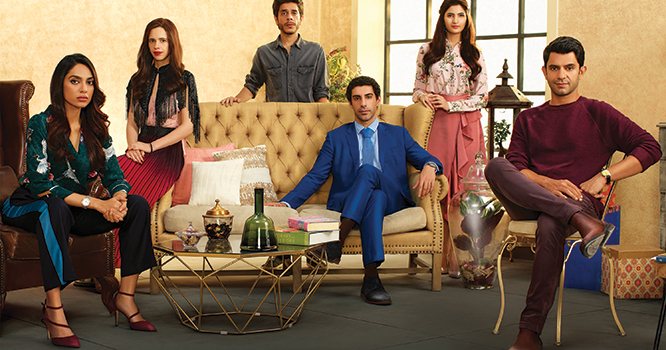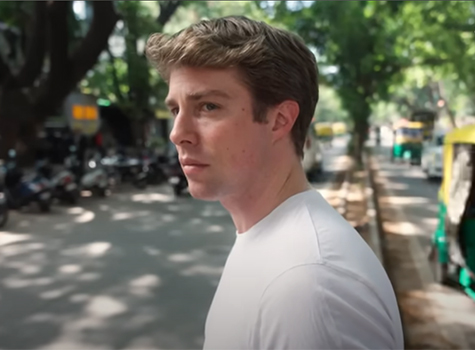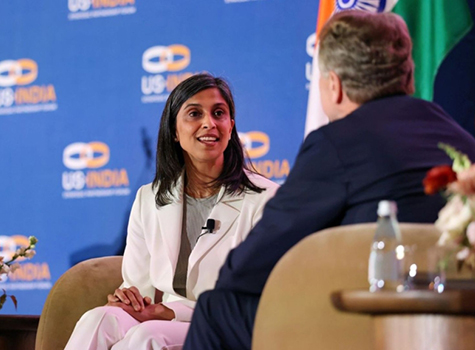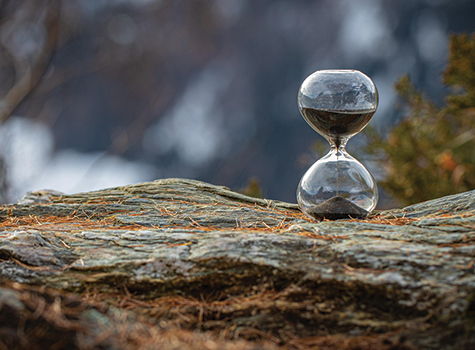
Outlandish weddings, social climbing and scandalous trysts are only few of the ingredients in Amazon Prime’s latest original Indian series, Made in Heaven. Released on March 8, Made in Heaven is the third series produced by Excel Entertainment for the streaming service after Inside Edge and Mirzapur. The production house has long had the reputation of being obsessed with ‘rich people’s problems’ with Zindagi Na Milegi Dobara and Dil Dhadakne Do being prominent cases in point, but Talaash and the recent Gully Boy are excellent examples of Excel deftly handling stories related to the aam admi (common man).
Gully Boy‘s roaring success at the box office has been attributed to the younger, urban demographic which will likely stream Made in Heaven.
Comprised of nine episodes, Made in Heaven‘s debut season is a look into the world of present-day wedding planners in India’s capital, New Delhi. Together, Karan Mehra (Arjun Mathur) and Tara Khanna (Sobhita Dhulipala) lead a wedding planning business named Made in Heaven which caters to upper crust Delhiites. Supporting characters include Adil Khanna (Jim Sarbh) as Tara’s powerful industrialist husband and Faiza Naqvi (Kalki Koechlin) as Tara’s confidant and Khanna family friend.
If one is familiar with Excel Entertainment’s filmography, on the outside Made in Heaven looks like a sibling of Zindagi Na Milegi Dobara and Dil Dhadakne Do with wealthy friends and family resolving their issues, but from the first episode class and social status become a central focus as seen in Gully Boy. Most of the weddings featured in the series are “love marriages” and the opening credits showcase real life couples during ceremonies, when romance and the promise of unconditional, undying love are celebrated. Although what viewers quickly notice episode after episode is that more than love, it’s the question and answer of “What’s in it for me?” that dictates whether a person finds their prospective mate suitable for an alliance, with the ‘it’ often times being wealth, privilege and/or power.
The over-the-top festivities and the incredible array of colors and sparkle associated with Indian weddings entices viewers but the examination of double standards and often regressive back dealings of seemingly progressive people makes us interested in seeing more. And a caveat to those who enjoyed watching the aforementioned films with family: this series has plenty of sex, profanity and drug use making Made in Heaven perhaps more suitable to view alongside friends than family.
Zoya Akhtar and Reema Kagti, who together have written Gully Boy, Dil Dhadakne Do, Talaash and Zindagi Na Milegi Dobara, with Kagti directing Talaash and Akhtar directing the remaining, are the creators of the series and have written all nine episodes with Alankrita Shrivastava, who has directed feature films Turning 30!!! and Lipstick Under My Burkha. Akhtar, Shrivastava and Prashant Nair (Umrika) have directed two episodes each and Nitya Mehra, who has assisted in such films as Don and Little Zizou, has directed three.
When an episode is handed over to a different director the changeover isn’t jarring, but treatment can feel uneven and it’s likely the episodes a viewer enjoys more than others will be attached to specific director(s). Cinematography is lovely and at times moody, and same can be said for the gorgeous production design, though sometimes even the mess on an office desk can appear too staged. While viewers are spared from the usual shots of India’s capital whether it is Hanuman statue next to the Delhi metro or India Gate, the city mostly serves as a charming backdrop and not a character. Parts of the metropolis are shown but not felt in an intimate way as experienced in the Hindi feature film Monsoon Wedding.
Sobhita Dhulipala’s mysterious Tara looks absolutely mesmerizing especially when beautifully styled in sharp sarees, which she often is. Dhulipala is a clothes horse and in a large crowd can command all eyes towards her, a quality central to why Adil considers Tara worthy to be on his arm. Tara’s background and how she became Mrs. Khanna is slowly revealed and the intrigue it provides covers for scenes Dhulipala can’t quite conquer as an actor. Much kudos to Akhtar and Kagti for making Karan, a gay character, a pillar in their series and making his sexuality central to his identity. The sad irony of Karan, who plans weddings for a living, is that legally he is cannot have a physical relationship with a man, let alone marry one.
Arjun Mathur acts with confidence but the repetitive wash-rinse-repeat life Karan has changes towards final episodes, giving Mathur fewer than desired opportunities to explore his acting range. Jim Sarbh’s Adil belongs to a successful Punjabi family but to borrow a memorable Kareena Kapoor Khan quip from a Koffee With Karan episode, why does he have that accent? Adil is acutely aware of his social status and pedigree and soon enough makes his wife aware of hers and in these quiet, menacing moments Sarbh tends to shine as he did in Raabta and Padmaavat.
Kalki Koechlin lowers the energy in scenes and indulges in play-acting where she tries to convince the audience of her feelings and motivations rather than embodying the necessary emotions. While Tara, Adil, Faiza and even Karan’s lives are gushing with ennui, the supporting characters outside the pool of privilege provide reason to keep viewers engaged. Jaspreet ‘Jazz’ Kaur (Shivani Raghuvanshi) is the starry-eyed intern who devises solutions during workplace emergencies that are initially scoffed at by company seniors because she’s from the dusty lanes of Delhi.
Kabir Basrai (Shashank Arora) is the wedding photographer/videographer and this character, must bear the unfortunate burden given to Pluto the dog in Dil Dhadakne Do which is to spell out the lesson of each episode.
Akhtar and Kagti should give the audience more credit when it comes to appreciating nuance. Furthermore, the deductions made by Kabir can border on the self-indulgent and misguided. Actor Vijay Raaz comes full circle in the series centered on wedding planners, as his ‘Dubey’ in Monsoon Wedding is arguably the first and one of the best-known wedding planners in Hindi cinema. Here he plays Ramesh Jauhari, a dubious business owner investing in Made in Heaven. In the eighth episode and in barely five minutes of screen time Raaz shows the difference between a good performer and a masterful actor, making much of the primary cast of the series belong to the former category.
Each episode shows a wedding Made in Heaven is commissioned to work on which gives viewers the opportunity to meet a new couple and their family and friends. Not only does this provide a needed freshness to each episode, as Tara and Karan’s worlds and reactions become increasingly predictable, bringing in seasoned professionals, such as Neena Gupta, and actors we’d like to see more of like Shweta Tripathi, Amrita Puri helps in ensuring the viewer will want to see the next episode wondering which other artists will join the wedding festivities. If Made in Heaven is greenlit for another season, which is likely, giving characters more depth and actors more scope to show their range would indeed be heaven sent.
What ultimately makes Made in Heaven an engaging, mostly enjoyable watch is that it makes viewers ask themselves what they would do at the critical junctures many couples in the series find themselves asking on the eve of their weddings, and in some cases, during the marriage ceremony itself. Would you have the courage to be the person you think you are or aspire to be, or would you succumb to seemingly archaic traditions by justifying them as practical and for the greater good?
———-
Shivani Tripathi cannot remember a time she wasn’t madly in love with Indian cinema and writing. She spends time in New York, North Carolina and Twitterpur at @Shivani510



